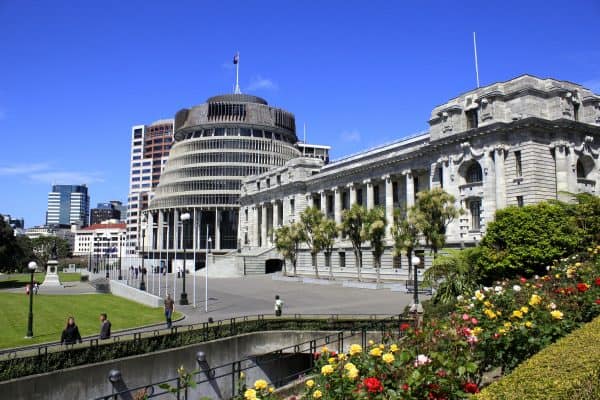There can be no arguing that news pertaining to the real estate market receives more than its fair share of publicity. It’s a topic that’s near and dear to the hearts of all property owners as well as to those who aspire to taking their first step onto the property ownership ladder. It is a topic that makes the headlines, sells newspapers and often heads local and national news in all forms of media. There is a large array of media commentators that contribute to the ongoing supply of real estate news including economists who regularly expound their theories based on government policies, market trends and Reserve Bank directives, all of which can impact on the real estate market.

Quotable Value Ltd (QV) is well known for its regular dissemination of real estate information which is based on factual past and present market data and is deemed to be a reliable source of information. On their website QV describe themselves as “NZ’s leading source of property information and advice. QV is New Zealand’s largest valuation and property services company. We are a market-driven, commercially focused business, offering innovative professional valuation and related property information.” Tommy’s respect the integrity of information disseminated by QV Ltd.
In a recent information release from QV pertaining to the property market they stated “Residential property sales activity looks set to tick along at the same controlled pace in the second half of the year as it has in the first, with average values growing in a restrained fashion. Other key factors to watch over the rest of 2019 include policy decisions from the Reserve Bank (e.g. LVR and bank capital rules), the landscape for investor’s returns, the potential flattening off of residential building consents, and how insurance premiums might change due to risk based pricing.”
Looking ahead, QV offered 10 predictions (attributed to Core Logic Senior Property economist Kelvin Davidson) for the remainder of the calendar year.
1. Sales volumes to stay pretty flat, with various downward drivers (e.g. slowing GDP growth) largely offset by other positive factors (e.g. low mortgage rates)
2. Average property values still rising but in a restrained fashion with the more affordable towns and cities in regional NZ likely to record the largest increases. By contrast, it wouldn’t be a surprise to see further weakness in Auckland as buyers bide their time.
3. Further loosening of the Loan to Value Ratio (LVR) rules in November reflecting our expectation of steady market conditions.
4. Imposition of extra capital requirements on the banks by the end of November with a phased approach (potentially over five years).
5. Banking sector competition to remain intense and “rate wars” to be a recurring theme. This will be the case regardless of whether or not the Reserve Bank cuts the official cash rate again.
6. Foreign Buyer Ban to remain a contributing factor to softness in the Central Auckland and Queenstown property markets.
7. More homeowners potentially “trading up” or in other words taking advantage of a subdued market, especially in Auckland to get a bigger or newer property or in a better location.
8. Rental yields to continue to rise (albeit from a low base) as rental growth continues at a steady pace of 5%annually and above the growth in average property values.
9. Residential building consents to flatten off as capacity constraints around labour and materials bite.
10. Building insurance to come into starker focus, especially given the issues we’re already seeing in Wellington with changes to pricing methods and big increases in premiums.
It is our opinion at Tommy’s that prospects look positive for the remainder of 2019. There appears to be some likelihood of a further reduction in the OCR either at the August review or later in the year and this will ensure continuity of the current era of low mortgage interest rates. This, combined with the demand for property in and around the capital city, seems certain to ensure that there is little variance in the current level of real estate activity. Whilst many are projecting a further reduction in prices in Auckland and Queenstown, Wellington has historically been immune to wide market swings and the status quo seems likely to apply to our market through the remainder of 2019.
Buying or selling, give us a call to discuss how current market conditions fit in with your personal real estate objectives.
















































































